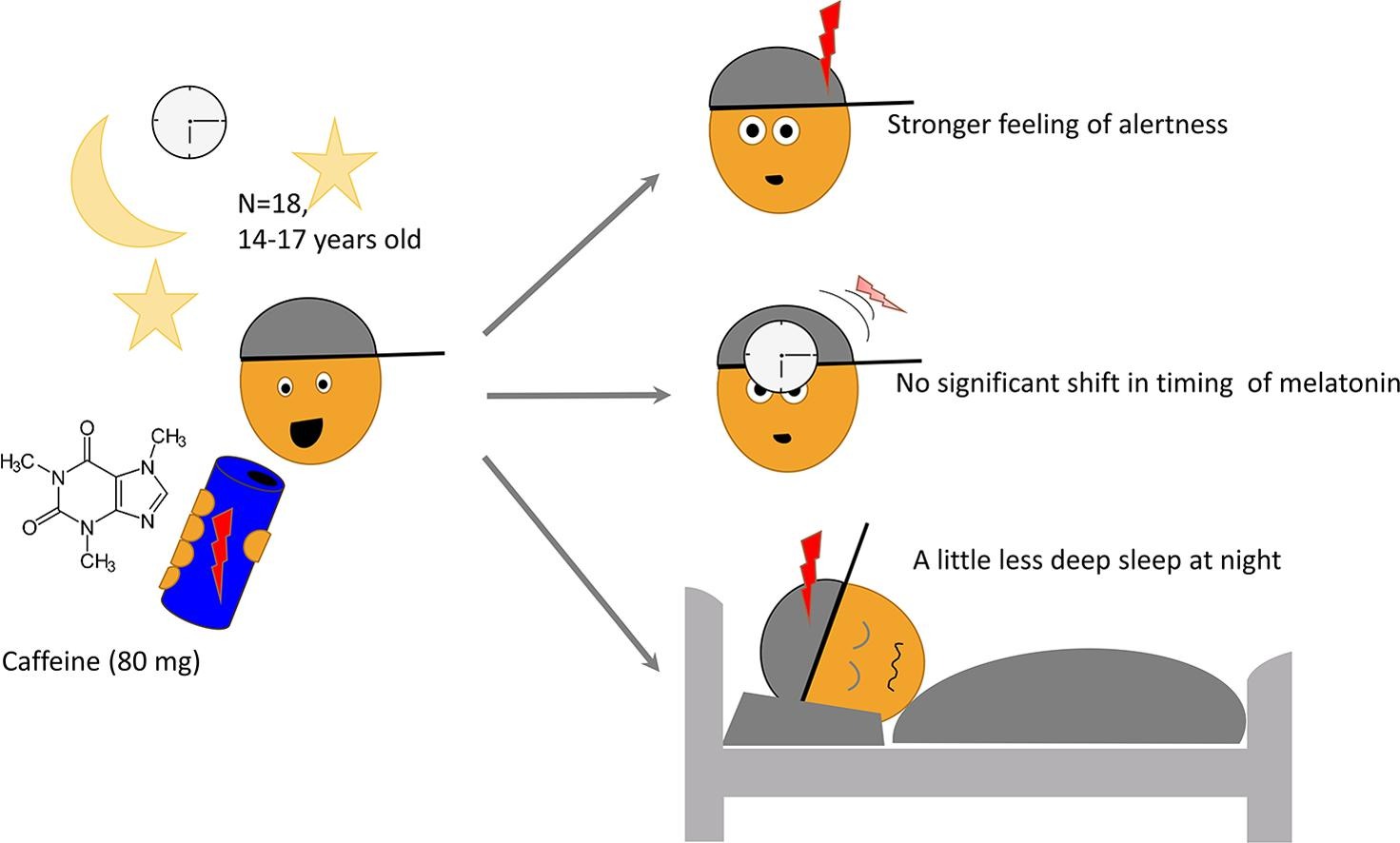Sleep Science Friday: Effect of Caffeine Intake in Adolescents
17 December 2021
Many of us consume caffeine for a number of reasons, but the goal is most times the same -to stay awake or alert. But in the case of adolescents (teenagers), the effect of caffeine consumption has not received much attention.
In an interview with Dr. Kate Porcheret (ESRS Website Editorial Board), Dr. Carolin Reichert (Centre for Chronobiology, Psychiatric Hospital of the University of Basel, Basel, Switzerland), went in depth on her most recent publication addressing this topic: Wide awake at bedtime? Effects of caffeine on sleep and circadian timing in male adolescents – A randomized crossover trial.
The study focused specifically on adolescents as there has been no systematic experimental investigation which focuses on the effects of caffeine on sleep-wake regulation of teenagers. This gap in knowledge is what prompted Dr. Reichert to carry out this study.
The Findings
In their randomized placebo crossover trial, participants were asked to ingest 40mg of caffeine in the evening after a week of abstinence, or a placebo. Subjective sleepiness and sleep quality were measured and the findings were not entirely surprising – they were all reduced.
However, melatonin which was also measured, did not exhibit the same level of reduction in the evening after caffeine compared to placebo. This was an unexpected finding as there are a few studies where it has been shown in adults that there is melatonin suppression in the evening after caffeine. However, the authors think this may be due to the teenagers receiving a lower relative dose than the adults in these previous studies.
The study also found that the participants indicating a worse sleep quality following caffeine consumption. So, the alertness they gain from drinking caffeine in the evening (the intended result) comes at a cost of poorer sleep quality in the night (unintended result). As much as caffeine is a large part of our daily lives, this should be consumed with caution, especially in adolescents.
Here’s the full interview with Dr. Reichert – listen for more details, especially on chronic vs. acute caffeine consumption and the next studies following this publication.
ESRS Announcements
2022 ESRS Examination in Sleep Medicine
ESRS Grants
Recent publications from ESRS members:
- Messaoud et al. (2021). Implantable cardiac devices in sleep apnoea diagnosis: A systematic review and meta-analysis. Int J Cardiol.
- Palagini, Geoffroy & Riemann (2021). Sleep markers in psychiatry: do insomnia and disturbed sleep play as markers of disrupted neuroplasticity in mood disorders? A proposed model. Curr Med Chem.
- Bastianini et al. (2021). Early-life nicotine or cotinine exposure produces long-lasting sleep alterations and downregulation of hippocampal corticosteroid receptors in adult mice. Sci Rep.
- Partinen et al. (2021). Sleep and daytime problems during the COVID-19 pandemic and effects of coronavirus infection, confinement and financial suffering: a multinational survey using a harmonised questionnaire. BMJ Open.
- Postiglione et al. (2021). Narcolepsy with intermediate cerebrospinal level of hypocretin-1. Sleep.
- Hoekstra et al. (2021). The sleep-wake distribution contributes to the peripheral rhythms in PERIOD-2. Elife.
- Hartmann et al. (2021). Causality of cortical and cardiovascular activity during cyclic alternating pattern in non-rapid eye movement sleep. Philos Trans A Math Phys Eng Sci.
- Parekh et al. (2021). Endotyping Sleep Apnea One Breath at a Time: An Automated Approach for Separating Obstructive from Central Sleep-disordered Breathing. Am J Respir Crit Care Med.
- Mäkelä et al. (2021). Signaled night awakening and its association with social information processing and socio-emotional development across the first two years. Sleep.
- Yamazaki et al. (2021). Granule cells in the infrapyramidal blade of the dentate gyrus are activated during paradoxical (REM) sleep hypersomnia but not during wakefulness: a study using TRAP mice. Sleep.
- Khachatryan et al. (2021). The Assembly of National Sleep Societies (ANSS-ESRS) moves “Beyond Boundaries”: A project announcement. J Sleep Res.
Just published an article? Want your research to be featured? Saw something interesting? Contact us at esrs@esrs.eu.





